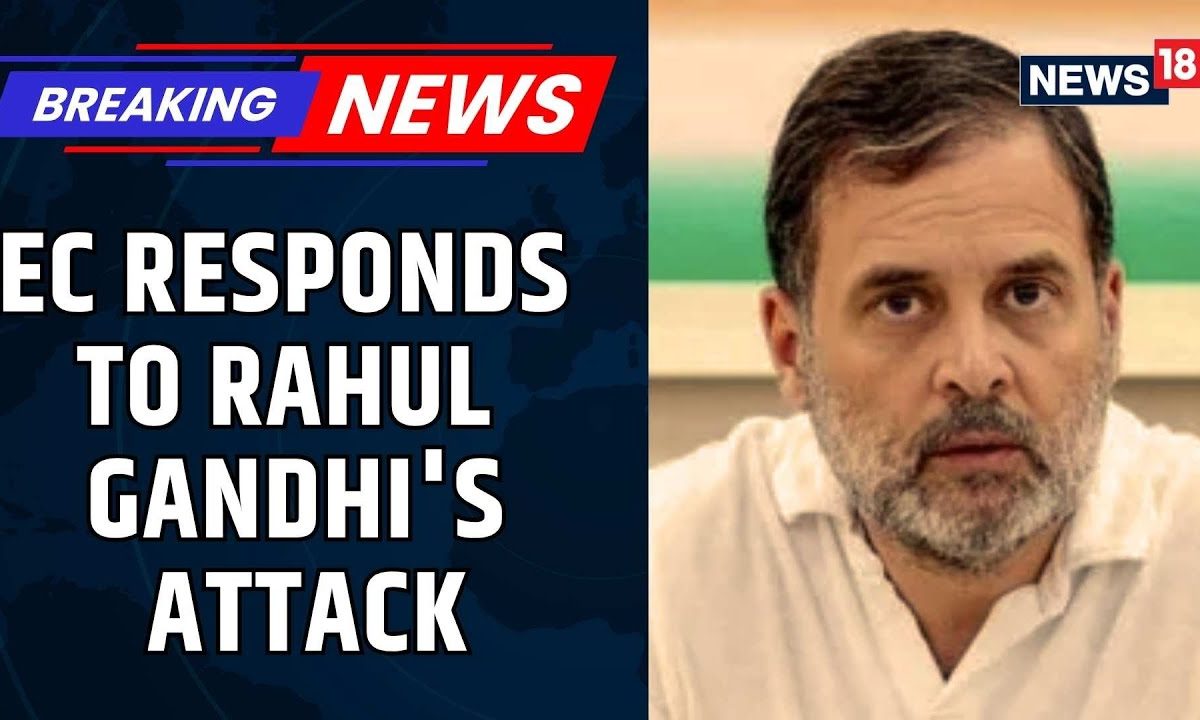

The controversy surrounding the November 2024 Maharashtra Assembly elections has reignited, with the Election Commission of India (ECI) strongly refuting allegations of "match-fixing" and irregularities raised by Congress leader Rahul Gandhi. Sources suggest that a more formal and structured engagement from Gandhi with the ECI, rather than public accusations, could have been a more productive approach to address his concerns.
Gandhi's allegations, articulated in an article and subsequent social media posts, revolve around several key points: the alleged rigging of the panel for appointing Election Commissioners, the addition of fake voters to the electoral rolls, inflated voter turnout figures, targeted bogus voting, and the subsequent hiding of evidence. He characterized the Maharashtra Assembly elections as a "blueprint for rigging democracy," expressing concerns that similar tactics could be employed in future elections, including the upcoming Bihar Assembly elections.
The ECI has responded with a firm rebuttal, deeming Gandhi's claims "completely absurd" and "unsubstantiated." The commission emphasized the transparency and integrity of the electoral process, highlighting the presence of representatives from all political parties at every stage of the election. They also pointed to the meticulous preparation of electoral rolls and the lack of significant complaints raised by the Indian National Congress (INC) or other political parties before or during the election.
Specifically, the ECI addressed Gandhi's claim that 70 lakh voters were mysteriously added to Maharashtra's electoral rolls between the 2024 Lok Sabha and Assembly elections. The commission clarified that the actual number was 40.81 lakh voters added during that period, a figure they attribute to the regular updating of voter rolls. The ECI also stated that after the finalization of the electoral rolls, only a minuscule number of appeals (89 to the first appellate authority and 1 to the second) were filed, further undermining the claim of widespread discrepancies.
The ECI has expressed its disappointment with Gandhi's conduct, stating that such allegations undermine the credibility of the electoral process and disrespect the thousands of election staff who work tirelessly to ensure fair and transparent elections. They reiterated that Indian elections are conducted according to the law and are widely praised for their scale and accuracy.
While the ECI has addressed Gandhi's allegations publicly, sources suggest that a more formal approach, such as a direct communication or meeting with the Election Commission, could have facilitated a more constructive dialogue. This would have allowed Gandhi to present his evidence in a structured manner and provided the ECI with an opportunity to respond directly and transparently. A formal engagement could have also helped to avoid the escalation of the issue into a public dispute, potentially preserving the integrity of the electoral process in the eyes of the public.
The controversy highlights the importance of maintaining public trust in the electoral system. While it is crucial for political leaders to raise concerns about potential irregularities, it is equally important to do so in a responsible and constructive manner. A formal dialogue between political stakeholders and the ECI can help to address concerns, clarify misunderstandings, and ultimately strengthen the democratic process. The ECI has also encouraged all concerned Indians to examine the evidence and demand answers, reinforcing its commitment to transparency and accountability.